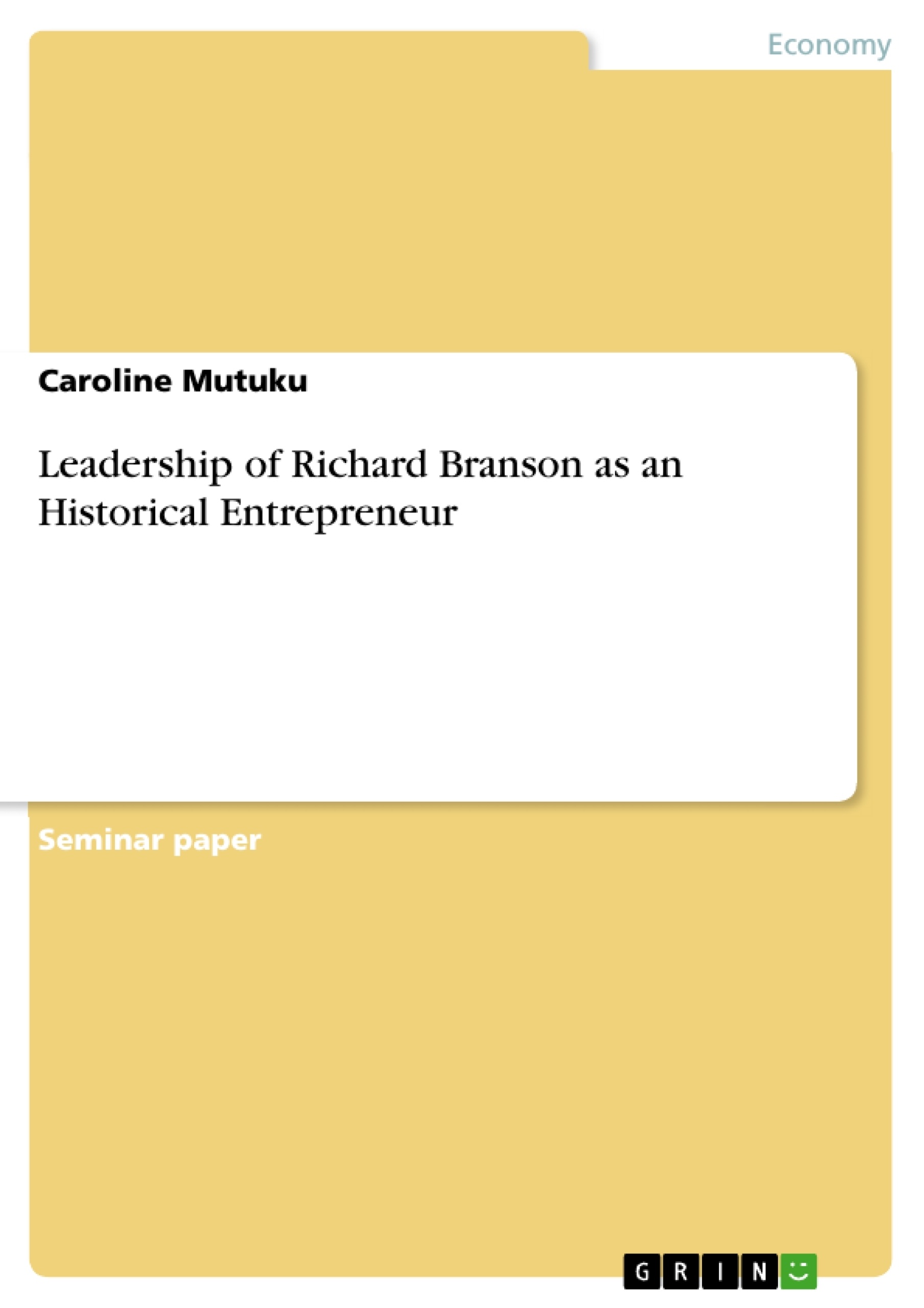Richard Branson has emerged to be one of the 21st century historical entrepreneurs owing to his leadership style and personal characteristics. In the past twenty years, Richard Branson has realized remarkable recognition in the business world in which he has expanded his investment in an array of ventures. His interest in business developed long ago during his elementary education when he dropped out of school and established a mail-order business. Later on, he transformed his mail-order business into a record label, in 1970s. It is quite surprising to learn that Branson adopted reliable business leadership approaches in his business leading to a rapid expansion (Dearlove, 2007). It was during its initial successes that Branson owned record stores, which bore the Virgin Records brand. In 1980s and 1990s, Branson extended his business venture into airlines in which he established the Virgin Atlantic Airways. In addition, he expanded his business further when he established a Virgin record label in the US. Another significant advancement of Branson’s investment was the establishment of a space tourism company named Virgin Galactic. His intention for establishing this company was for reaching orbital trips around the world owing to the remarkable growth of global tourism (Walenius & Westerstål, 2010). Currently, Branson owns the Virgin Group which is valued at $5 billion. Virgin Group consists of over 200 different companies including cellular phone companies, airlines and record labels.
Table of Contents
- Introduction
- Richard Branson's Success
- Leadership Style
- Conclusion
Objectives and Key Themes
This text analyzes the leadership style of Richard Branson and explores the factors that have contributed to his success as an entrepreneur. The aim is to understand Branson's leadership approach and its impact on the Virgin Group.
- Richard Branson's leadership style and its impact on the Virgin Group
- The key elements of Branson's leadership style, including delegation, visionary leadership, self-knowledge, and team-building
- Branson's approaches to employee motivation, such as incentives and trust building
- The relevance of Branson's leadership style to contemporary management practices
- Branson's qualities as a global leader, including his dynamic ability, goal-oriented approach, and trustworthiness
Chapter Summaries
- Introduction: This chapter provides an overview of Richard Branson's entrepreneurial journey, highlighting his early ventures and the growth of the Virgin Group.
- Richard Branson's Success: This chapter examines Branson's leadership style, which emphasizes delegation and a laissez-faire approach to management. It also explores how his leadership has contributed to the success of the Virgin Group.
- Leadership Style: This chapter delves deeper into the key elements of Branson's leadership style, including his visionary leadership, self-knowledge, and team-building abilities. It also discusses how he motivates his employees.
Keywords
The main keywords and focus topics of this text are: Richard Branson, leadership style, entrepreneurship, Virgin Group, delegation, visionary leadership, self-knowledge, team-building, employee motivation, global leadership, and business expansion. The text explores Branson's leadership approach and its impact on the Virgin Group's success, highlighting key aspects of his leadership style and its relevance to contemporary management practices.
- Quote paper
- Caroline Mutuku (Author), 2018, Leadership of Richard Branson as an Historical Entrepreneur, Munich, GRIN Verlag, https://www.grin.com/document/429852




